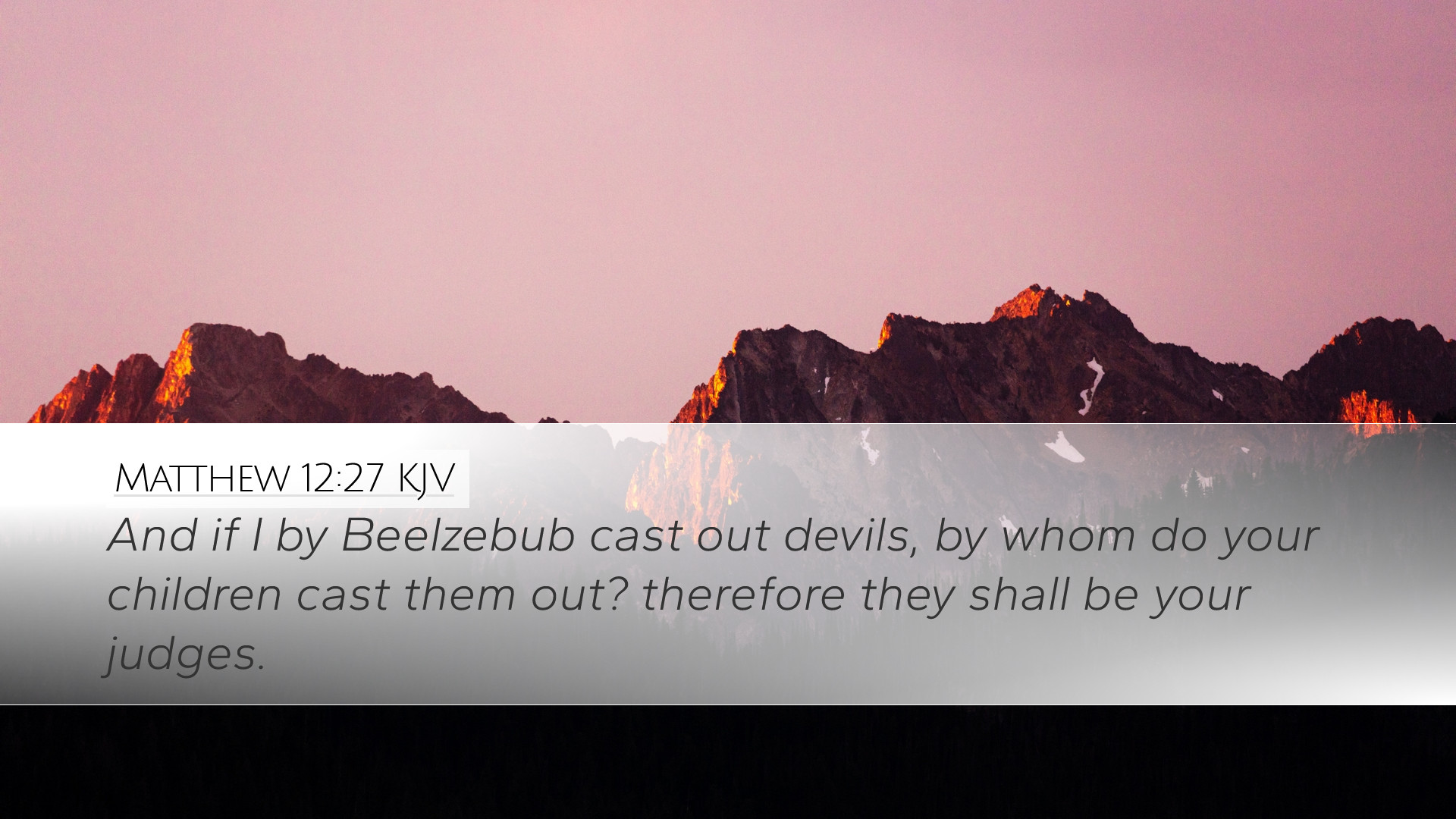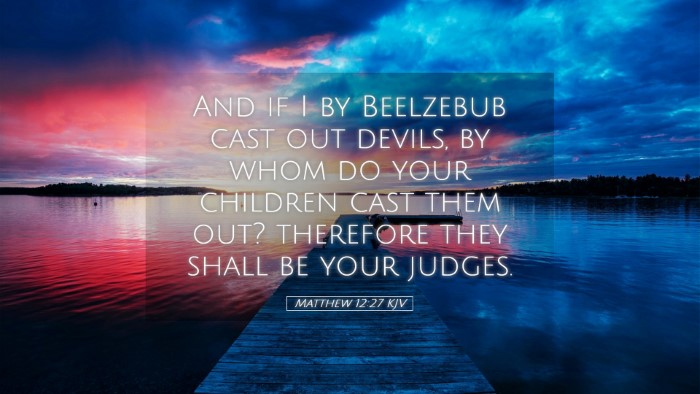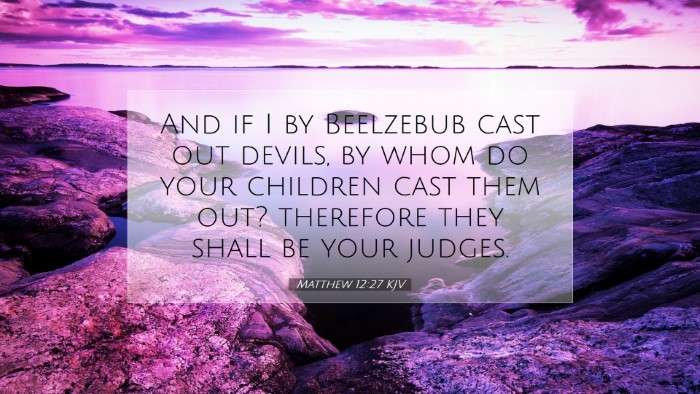Commentary on Matthew 12:27
Bible Verse: "And if I by Beelzebub cast out devils, by whom do your children cast them out? therefore they shall be your judges." (Matthew 12:27)
Introduction
In this verse, Jesus challenges the accusations made against Him regarding the source of His authority and power in performing exorcisms. This moment serves as a pivotal argument in His ministry, where He confronts the Pharisees who attributed His works to the evil one, Beelzebub. The implications of His response are profound for understanding the nature of spiritual authority and discernment.
Contextual Background
Matthew 12 contains interaction between Jesus and the Pharisees following several notable miracles and teachings. The Pharisees, representatives of religious authority, felt threatened by Jesus' growing influence and the implications of His miracles. In their attempt to discredit Him, they attributed His power to demonic sources.
The Accusation of the Pharisees
Before verse 27, the Pharisees have openly claimed that Jesus casts out demons by Beelzebub (Matthew 12:24). Their reasoning reflects a misunderstanding of Jesus’ mission and the source of divine power.
Exegesis of Matthew 12:27
Literal Understanding: The verse poses a rhetorical question, inviting reflection on the legitimacy of Jesus' power. It suggests that the spiritual authority they claim to possess should have clearer demonstrations of their own divinity if their accusations against Him are to hold weight.
Spiritual Authority and the Use of Beelzebub
Matthew Henry notes that Jesus' counter-question reveals their hypocrisy. If they are casting out demons by the same spirit, it would imply that they are also in league with Beelzebub. This exposes the irrationality of their position and emphasizes the true work of the Holy Spirit in Christ’s miracles.
Implications for the Observers
Albert Barnes adds that the worshippers and followers of Jesus stood as witnesses in this exchange. They would come to understand that denying the source of His power effectively condemns their own practices and positions. Thus, Jesus places the burden of proof back upon the accusers.
The Nature of Judgment
You will note that Jesus mentions that “they shall be your judges.” Adam Clarke elucidates that this reflects a profound spiritual truth: the very accusers who rejected the truth would find themselves judged by their own standards. It serves as a warning regarding self-deception and the dangers of attributing God’s work to evil.
Theological Reflections
This verse reveals much about the nature of divine authority. Jesus stands firmly against the prevailing spiritual ignorance of the Pharisees and highlights the importance of recognizing true spiritual authority. His miracles stand distinct from any diabolical powers, representing the Kingdom of God’s breaking into the world.
Christ’s Authority in Spiritual Warfare
Jesus' casting out of demons was not merely performative; it was a declaration of the in-breaking of God’s Kingdom. His authority proved that He was the one fulfilling the prophecies and the hopes of Israel.
The Role of Spiritual Discernment
Pastors and theologians today must grapple with similar issues of discernment. The comments of Matthew Henry remind modern readers that the distinction between light and darkness is crucial when evaluating spiritual phenomena. Galatians 5:22-23 provides criteria for evaluating spiritual activity through the fruits of the Spirit.
Conclusion
Matthew 12:27 stands as a significant theological statement against the backdrop of Jesus' ministry and the misunderstandings surrounding it. It encourages believers to sharpen their discernment in a world rife with competing spiritual claims and to remain attuned to the authentic work of God in the world. The challenge presented by Jesus is still relevant: to seek the rightful source of spiritual authority and to align ourselves with divine truth, free from the judgments driven by fear and misunderstanding.
Reflection Questions
- How might we be guilty of misjudging the work of God today?
- What does this passage teach us about the nature of our spiritual authority as believers?
- In what ways can we cultivate discernment in our communities to recognize the true works of the Spirit?


